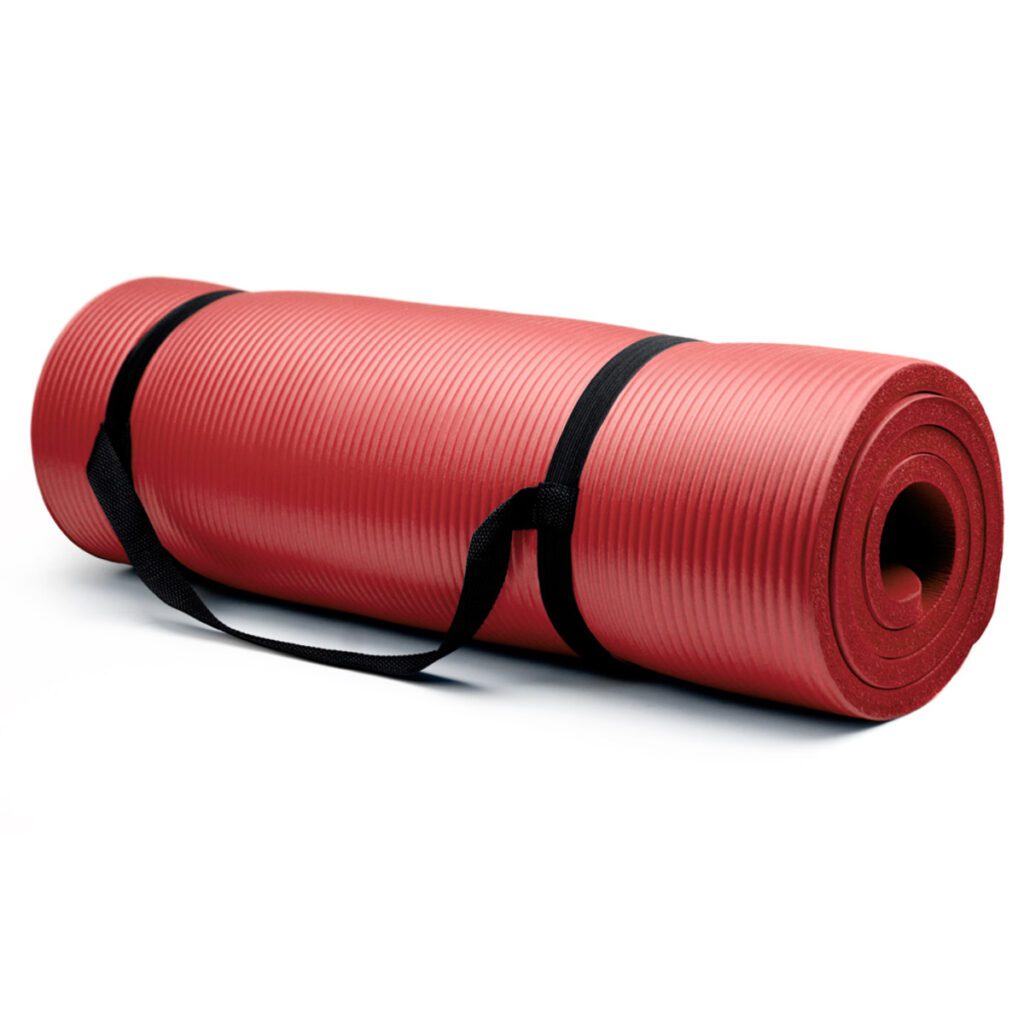Yoga is a practice that harmonizes the mind, body, and spirit. To fully immerse yourself in this ancient art, you need the right equipment, and the best yoga mat you can find is at the top of that list. With countless options available, choosing the perfect mat can be overwhelming. In this article, we’ll explore the top 5 tips to consider when buying the best yoga mat for your practice.
Table of Contents
Choosing The Best Yoga Mat
1. Material Matters

Natural Rubber
Natural rubber mats are eco-friendly and offer excellent grip. However, they can be a bit heavy and may not be suitable for those with latex allergies.
PVC
PVC mats are durable and easy to clean but are not biodegradable. If you’re environmentally conscious, this may not be the best option for you.
TPE
Thermoplastic Elastomer (TPE) mats are eco-friendly and lightweight but may wear out faster than other materials.
Tip: Choose a material that aligns with your values and needs.
2. Thickness and Density
Standard Thickness
A standard yoga mat is about 1/8-inch thick. It provides a solid surface for balance but may not offer enough cushioning for sensitive joints. A thinner mat like this allows more sensitivity to the surface beneath, which can be beneficial for advanced practitioners who prefer to feel grounded and connected to the floor during their practice. These mats are generally lightweight and easy to roll up, making them highly portable and convenient for yogis who travel or attend classes outside their home.
Extra Thick
Mats that are 1/4-inch thick offer more cushioning but can make balancing poses challenging.
Yoga mats with a thickness of 3/4 inch (about 19mm) are significantly thicker than the standard yoga mats, which usually range from 1/8 inch to 1/4 inch thick. The extra thickness provides a cushioned, plush surface. Thicker mats are excellent for restorative yoga or any practice involving a lot of seated or lying down poses. The added cushioning can make these positions more comfortable and sustainable for longer periods.
These thick mats can also be used for other exercises like Pilates or general fitness routines that require floor work, providing a comfortable and stable surface.
Tip: Test different thickness levels to find what’s comfortable for your body while still allowing you to maintain balance.
3. Texture and Grip
Smooth Mats
Smooth mats are easier to clean but may become slippery when wet.
Textured Mats
Textured mats offer better grip but can be uncomfortable for some people.
Tip: If you tend to sweat a lot, a textured mat with good grip will be beneficial.
Ultimately, the choice of texture is often down to personal preference and the type of yoga practice. Some yogis may prefer a rougher texture for grip-intensive practices, while others might choose a smoother mat for comfort during more relaxed styles.
4. Size and Portability
Standard Size
The standard mat size is 68×24 inches, suitable for most people.
Extra-long
If you’re taller, you may prefer an extra-long mat, which can be up to 84 inches.
Tip: Consider how you’ll be transporting your mat. If you travel frequently, a lightweight, foldable mat may be more convenient.
5. Price and Brand
Budget Mats
Budget mats can be as low as $10 but may lack durability and comfort.
Premium Mats
Premium mats can cost upwards of $100 but offer better quality, durability, and often come with warranties.
Tip: Invest in a quality mat if you practice regularly. It’s a long-term investment in your well-being.
End Up With The Best Yoga Mat
Choosing the right yoga mat is crucial for a fulfilling practice. Consider the material, thickness, texture, size, and price when making your decision. Remember, the best mat for you is one that meets your individual needs and enhances your yoga experience.